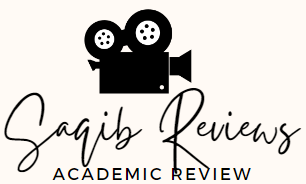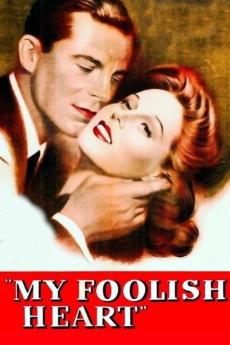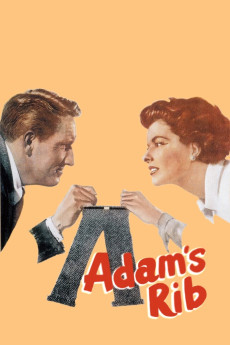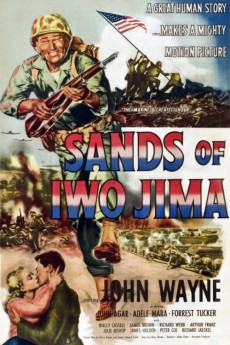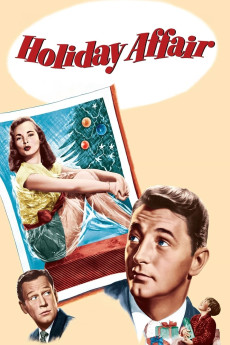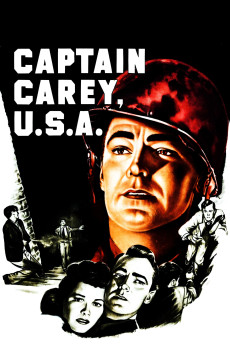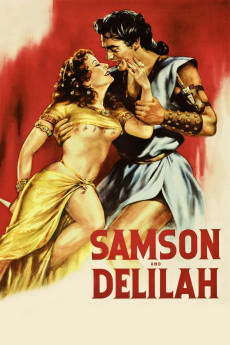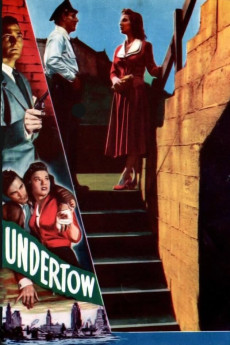My Foolish Heart (1949) – Academic and Psychological Review
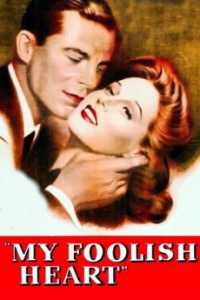
My Foolish Heart (1949) – Academic and Psychological Review
Plot Summary
‘My Foolish Heart’ (1949) is a captivating tale of love, regret, and the complexities of human emotions. The story revolves around Eloise Winters, whose life is turned upside down after a brief but intense romantic affair with Walt Dreiser. The narrative explores themes of lost love, personal growth, and the consequences of our decisions.
Characters and Acting
The film features strong performances by Susan Hayward as Eloise Winters and Dana Andrews as Walt Dreiser. Hayward’s portrayal of Eloise is both poignant and powerful, capturing the character’s vulnerability and strength. Andrews delivers a compelling performance as Walt, a man torn between duty and desire. The supporting cast also adds depth to the story, making the characters feel real and relatable.
Direction
Directed by Mark Robson, ‘My Foolish Heart’ showcases his ability to blend drama and romance seamlessly. Robson’s direction is subtle yet effective, allowing the characters and their emotions to take center stage. His vision is evident in the film’s pacing and narrative structure, which keeps the audience engaged from start to finish.
Cinematography
With cinematography by Robert De Grasse, the film is visually stunning. De Grasse’s use of lighting and camera angles enhances the emotional tone of the movie. The black-and-white visuals add a timeless quality to the film, making it a classic piece of cinema.
Music and Score
The musical score, composed by Victor Young, is a highlight of ‘My Foolish Heart.’ The music complements the film’s emotional depth and enhances key moments. The title song, “My Foolish Heart,” became a hit and remains a beloved classic, adding to the film’s enduring appeal.
Themes
The central themes of ‘My Foolish Heart’ include love, regret, and redemption. The film delves into the complexities of human relationships and the impact of our choices on our lives. It also explores the idea of second chances and the possibility of healing and moving forward.
Screenplay and Dialogue
The screenplay, adapted by Julius J. Epstein and Philip G. Epstein from a short story by J.D. Salinger, is rich in emotional nuance. The dialogue is poignant and reflective, capturing the inner turmoil of the characters. The script effectively balances moments of intense drama with lighter, more hopeful scenes.
Special Effects
Given the film’s focus on character and story, ‘My Foolish Heart’ does not rely heavily on special effects. The practical effects used are subtle and serve to enhance the narrative without overshadowing the performances or the plot.
Editing and Pacing
The film’s editing, by Harry Marker, is tight and efficient. The pacing is well-balanced, allowing the story to unfold naturally. The transitions between scenes are smooth, maintaining the flow of the narrative and keeping the audience engaged throughout.
Production Design
The production design, led by Albert S. D’Agostino and Carroll Clark, effectively captures the era in which the film is set. The sets and costumes are detailed and authentic, contributing to the overall atmosphere of the film. The attention to detail in the production design helps to immerse the audience in the story.
Historical Accuracy
‘My Foolish Heart’ is set in the post-World War II era and accurately reflects the social and cultural context of the time. The film’s depiction of the period is convincing, with careful attention paid to historical details in the settings, costumes, and dialogue.
Overall Impressions
‘My Foolish Heart’ is a beautifully crafted film that resonates with audiences through its exploration of love and loss. The strong performances, compelling direction, and emotional depth make it a memorable cinematic experience. The film’s themes and characters are timeless, continuing to appeal to new generations of viewers.
Rating and Recommendation
I would rate ‘My Foolish Heart’ a solid 8 out of 10. The film is a must-watch for fans of classic cinema and those interested in stories that delve into the human condition. Its blend of drama and romance, combined with its strong emotional core, makes it a standout film from the 1940s.
Cultural Impact
The cultural impact of ‘My Foolish Heart’ extends beyond its initial release. The film’s title song became a standard, covered by numerous artists over the years. Its exploration of themes such as love and regret has influenced many subsequent films and continues to be relevant in contemporary cinema discussions.
Genre Analysis
‘My Foolish Heart’ fits well within the genres of drama and romance. It adheres to the conventions of both genres while also bringing a unique depth to its storytelling. The film’s emotional intensity and focus on character development set it apart from other romantic dramas of its time.
Comparative Review
When compared to other films of its era, ‘My Foolish Heart’ stands out for its emotional depth and character-driven narrative. While many films of the late 1940s focused on larger-than-life stories, this film’s intimate portrayal of personal struggles offers a refreshing contrast. It can be compared to other romantic dramas like ‘Casablanca’ (1942) and ‘Brief Encounter’ (1945) for its exploration of love and loss.
Audience Reception
‘My Foolish Heart’ was well-received by audiences upon its release, praised for its emotional storytelling and strong performances. Over the years, it has maintained a loyal following and is regarded as a classic in the romance genre. Audience reactions have consistently highlighted the film’s ability to resonate on a personal level.
Narrative Structure
The narrative structure of ‘My Foolish Heart’ is non-linear, using flashbacks to reveal key moments in Eloise and Walt’s relationship. This storytelling technique adds depth to the narrative, allowing the audience to understand the characters’ motivations and the impact of their past on their present lives.
Philosophical Analysis
The film poses several philosophical questions about love, regret, and the human condition. It explores the idea of whether it is better to have loved and lost than never to have loved at all. The characters’ struggles with their emotions and decisions prompt viewers to reflect on their own lives and choices.
Technical Analysis
Technically, ‘My Foolish Heart’ is a well-crafted film. The sound design is subtle yet effective, enhancing the emotional impact of key scenes. The lighting is used creatively to highlight the mood and tone of different moments. Overall, the technical aspects of the film contribute to its storytelling without overshadowing the narrative.
Subtext and Interpretation
Beneath its surface, ‘My Foolish Heart’ offers rich subtext about the nature of love and the consequences of our actions. The film can be interpreted as a cautionary tale about the importance of honesty and communication in relationships. It also explores the idea of personal growth and redemption, suggesting that it is never too late to change one’s path.
Director’s Previous Work
Mark Robson, the director of ‘My Foolish Heart,’ had a diverse career with a range of films spanning different genres. Comparing this film to his other works, such as ‘Champion’ (1949) and ‘Peyton Place’ (1957), showcases his versatility and ability to handle complex emotional narratives. ‘My Foolish Heart’ stands out for its intimate focus on character and emotion.
Literary Adaptation
‘My Foolish Heart’ is based on the short story “Uncle Wiggily in Connecticut” by J.D. Salinger. While the film adaptation takes some liberties with the source material, it remains faithful to the core themes and emotional depth of Salinger’s writing. The adaptation successfully translates the introspective nature of the short story into a cinematic experience.
Academic Review
The academic review of ‘My Foolish Heart’ delves into its narrative structure, character development, and thematic depth. The film’s use of non-linear storytelling, through flashbacks, provides a complex narrative that allows for a deep exploration of the characters’ psyches. Eloise, portrayed by Susan Hayward, is a richly developed character whose internal conflicts drive the narrative forward. The film’s dialogue is particularly notable for its reflection of the characters’ inner turmoil and the broader societal issues of the time.
From an academic perspective, ‘My Foolish Heart’ serves as a critical text for studying post-World War II American cinema. The film addresses the psychological impact of the war on individuals, especially on returning soldiers and the women who waited for them. This period saw a significant shift in gender roles, and the film captures this transition through its characters’ experiences and relationships.
The film’s thematic elements are also ripe for academic analysis. The central theme of regret is explored through Eloise’s reflections on her past decisions. Her relationship with Walt, marked by passion and eventual heartbreak, serves as a case study in the consequences of impulsive decisions and the quest for personal redemption. The film also touches on themes of memory and the passage of time, using flashbacks as a narrative device to juxtapose past and present.
Additionally, ‘My Foolish Heart’ can be analyzed through the lens of feminist film theory. Eloise’s character challenges the traditional gender norms of the 1940s, presenting a more nuanced portrayal of a woman grappling with her desires and societal expectations. The film’s depiction of her as both strong and vulnerable provides a complex and multi-dimensional character study.
The film’s reception and legacy offer another avenue for academic exploration. While it received mixed reviews upon its release, it has since been re-evaluated by critics and scholars. This shift in perception highlights the evolving nature of film criticism and the importance of context in understanding a film’s impact. ‘My Foolish Heart’ provides valuable insights into the cultural and social dynamics of its time, making it a significant subject for academic study.
Psychological Review
The psychological review of ‘My Foolish Heart’ focuses on the emotional and mental states of the characters, particularly Eloise. The film offers a profound exploration of human emotions, particularly those related to love, loss, and regret. Eloise’s psychological journey is central to the narrative, providing a rich tapestry of emotional experiences for analysis.
Throughout the film, Eloise experiences a range of emotions, from the euphoria of newfound love to the depths of despair following its loss. Her character arc is a study in the psychological effects of heartbreak and the ways in which individuals cope with emotional pain. The film portrays her internal struggle with authenticity, making her emotional journey relatable and impactful.
Walt’s character also provides insight into the psychological impact of wartime experiences. His return to civilian life is fraught with challenges, including the emotional scars left by the war. The film subtly addresses issues such as post-traumatic stress disorder (PTSD), which was not widely recognized or understood at the time. Walt’s difficulty in reconciling his past with his present life adds a layer of complexity to his character and the narrative.
The relationship between Eloise and Walt serves as a focal point for exploring psychological themes. Their connection is intense and passionate, but ultimately doomed by external circumstances and internal conflicts. The film delves into the psychological dynamics of their relationship, highlighting issues such as attachment, dependency, and the struggle for emotional autonomy.
Furthermore, ‘My Foolish Heart’ examines the psychological concept of regret. Eloise’s reflections on her past decisions and their consequences provide a poignant commentary on the human tendency to dwell on missed opportunities and ‘what if’ scenarios. This exploration of regret is tied to the film’s broader themes of memory and time, emphasizing the lasting impact of past experiences on present realities.
The film’s use of flashbacks serves a psychological function, illustrating how memories can shape an individual’s current emotional state. These flashbacks are triggered by various stimuli, reflecting the ways in which the past can intrude upon the present. This narrative technique underscores the persistence of emotional wounds and the difficulty of moving forward.
Overall, ‘My Foolish Heart’ provides a rich text for psychological analysis, offering insights into the emotional lives of its characters and the broader human experience. The film’s exploration of love, loss, and regret is both timeless and universal, resonating with audiences on a deeply emotional level.
Download Subtitles
To enhance your viewing experience, you can download the subtitles for ‘My Foolish Heart’ (1949) from the following link: Download Subtitles
